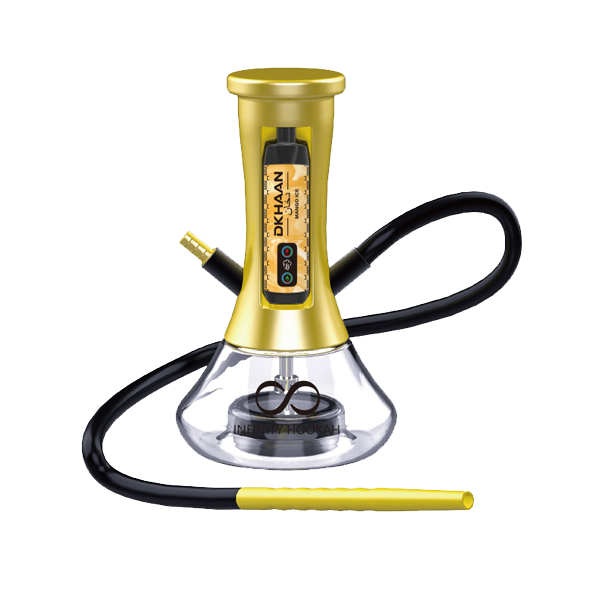Understanding Their Association
Nicotine is an extremely well-known stimulant found most frequently in tobacco products and electronic cigarettes; users have reported its side effect: increased bowel movement. Some reports show how nicotine consumption through vaping or smoking appears to increase digestion and cause the urge to go shortly afterwards, prompting many questions as well as potential answers regarding whether nicotine causes people to go more frequently and why? Eventually this leads to further queries as well as possible solutions about whether nicotine causes people to go.
This comprehensive article explores the effects of smoking on digestive health, the science underlying nicotine-induced bowel movement and both short and long term impacts of nicotine use on gut health.

I. The Effects of Nicotine on the Body?
To fully grasp how nicotine affects our bowel movements, we need first understand its impact. Nicotine is an alkaloid found in tobacco plants which acts as a stimulant on our central nervous system when inhaled or taken orally or topically; once taken this quickly enters our bloodstream via either inhaling smoke through inhaled smoke inhalers or by ingestion; once inside our system this interacts with receptors within brain, skin or other organs to influence various receptors connected with brain activity within these organs to influence receptors within brain, skin organs as soon as receptors come contact.
Nicotine works by binding to nicotinic receptors (nAChRs), stimulating them into secreting neurotransmitters like dopamine and norepinephrine into brain neurochemical pathways; this causes alertness increases, heart rate accelerations and various stimulant properties of nicotine’s effects beyond just its receptor system – including effects such as digestion.
II: Nicotine and the Digestive System
Our digestive system consists of an intricate network of muscles and organs responsible for digesting, absorbing, and expelled waste products from our bodies. This process is managed via involuntary muscle contractions, hormonal signaling pathways, enzyme production; nicotine has the power to disrupt these functions and lead to changes in bowel movement patterns.
1. Enteric Nervous System: Its Role
The enteric nervous system (ENS) is an intricate network found throughout the digestive tract that regulates functions like motility (movement of food through digestive tract), secretion, and blood flow to intestines. Nicotine affects this nervous system via various means:
Muscle Contraction/Mobility: Nicotine stimulates acetylcholine release from your enteric nervous system and leads to increased smooth muscle contraction within the digestive tract, much in the same way nicotine stimulates neurons and muscles within your brain – leading to Peristalsis movements which rapidly move food through your digestive tract and may eventually prompt quicker bowel movements.
Nicotine Can Trigger the Gastrocolic Reflex: Nicotine can trigger a gastrocolic reflex. This physiological process involves your stomach signaling to your colon that they should contract after eating; this reflex explains the urges many users experience shortly after indulging. Nicotine has even more dramatically intensified this urge after using nicotine products; many report feeling this urge even stronger!
2. Nicotine as Stimulant
Nicotine has stimulant effects on both digestive system and sympathetic system functions, prompting bodily functions not essential for immediate survival to temporarily speed-up or cease altogether.
Nicotine’s stimulating effect causes intestinal contraction to speed up and to produce greater motility – thus increasing motility and the urge to defecate. Smokers and vapers who use nicotine-containing products typically experience rapid motility shortly after use – particularly early morning when digestion is active. This often prompts them to defecate.
3. Nicotine and Stress
Nicotine has long been used as an aid for relieving anxiety and stress; however, stress has proven harmful for bowel movement. Stress-induced diarrhoea occurs when increased intestinal motility results in loose stools with frequent and loose stools as a side effect; nicotine acts as an anxiety inducer which also results in frequent bowel movements as a side effect.
Nicotine may actually work against itself by relieving anxiety and stress, potentially slowing digestion or decreasing bowel movements; evidence of its relationship between stress, nicotine, and digestive health.
III. Long-Term Effects of Nicotine Use on Digestion
Unfortunately, not enough research has been conducted into the long-term consequences of nicotine use on digestion. Smoking cigarettes has long been known to aggravate digestive conditions; continuing its use through nicotine use could exacerbate existing issues further.
Research suggests that nicotine disrupts the balance of Gut Microbiota, the diverse population of microorganisms found within your gut that play an essential role in digestion and immunity. A healthy microbiome in your digestive tract is vital to regular bowel movements and digestion; nicotine could reduce diversity within it by creating dysbiosis, where good and bad bacteria interact in an imbalanced manner, potentially leading to digestive issues or disease.
Dysbiosis may result in digestive ailments like diarrhea, constipation and bloating as it affects your gut microbiota resulting in chronic digestive issues.
2. Nicotine and Gastrointestinal Disorders
Long-term nicotine use has been associated with an increased risk for gastroesophageal reflux disease (GERD), peptic ulcers and Crohn’s disease – conditions with symptoms ranging from diarrhea and constipation to heartburn and stomach discomfort – leading to significantly greater risks from smoking than nonsmokers. Smoking further compounds this danger.
Nicotine may contribute to gastroesophageal reflux disease (GERD). By relaxing the lower esophageal sphincter – which protects against stomach acid from flowing back up through to the esophagus – nicotine may lead to acid reflux and eventual GERD symptoms like heartburn, indigestion and digestive distress.
Crohn’s Disease: While its exact cause remains unknown, smoking may increase your risk for Crohn’s. Crohn’s is an inflammatory bowel disorder (IBD) which may result in chronic diarrhea and abdominal discomfort; nicotine worsens its symptoms further.
3. Nicotine withdrawal and constipation
It’s interesting that while nicotine consumption may aid digestion and bowel movement, its withdrawal has the opposite effect, leading to constipation as your digestive tract adjusts without its help.
Quitting nicotine may cause intestinal muscles to relax, leading to slower digestion or decreased bowel movements – this withdrawal symptom typically lasts several days or weeks after discontinuing smoking or vaping.
IV. Nicotine Alternatives in Digestive Health
There are safer solutions available to individuals looking to enhance their bowel movement without taking on risks associated with nicotine:
Dietary Fiber: Consuming more dietary fiber can be helpful for maintaining regular bowel movement and warding off constipation, including fruits and vegetables, whole grains, legumes and whole grains as sources.
Hydration Is Essential To Proper Digestion: Drinking enough water is crucial to good digestion. Dehydration slows digestion down and may even lead to constipation; hence, getting adequate fluid intake is necessary for good bowel health and optimal digestive functioning.
Exercise: Exercising regularly can aid intestinal motility and lead to regular bowel movements.
Caffeine: Similar to nicotine, caffeine may aid digestion by increasing intestinal motility; however, excessive consumption carries its own set of risks.
Conclusion
Nicotine can have an immediate and dramatic impact on bowel movements due to its stimulating effects on enteric nerve systems and increasing intestinal motility, prompting many users to experience immediate urges to go soon after taking nicotine through vaping or smoking – this temporarily alleviates symptoms while simultaneously creating serious health risks.
People respond differently to nicotine use; some may benefit from its ability to regulate bowel movements while others could experience digestive conditions or discomfort as a result of using it.
Nicotine should not be seen as the solution to improving digestive issues; healthy diet plans, regular exercise routines and adequate hydration could provide safer and more sustainable methods to maintain regular bowel movement. Giving up nicotine may have positive results as well, even though quitting could initially cause constipation symptoms.

















